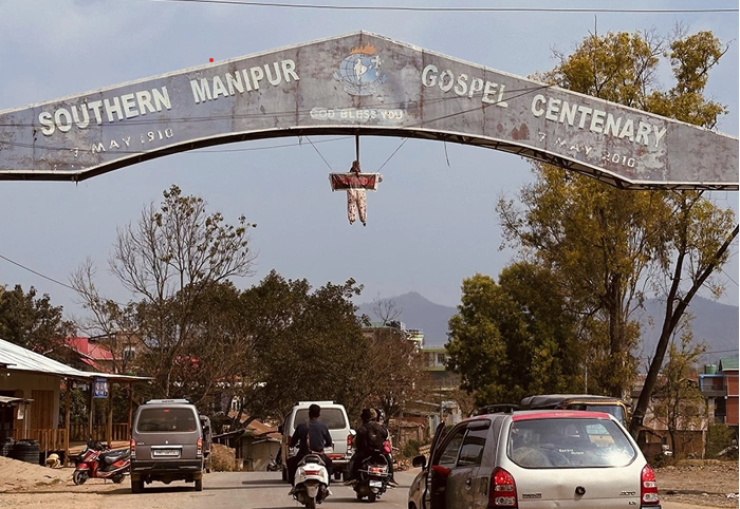
Union Home Minister Amit Shah chaired a high-level meeting in New Delhi to review the security situation in Manipur. The meeting, held on June 17 afternoon, comes amidst fresh incidents of violence and growing concerns over the spread of unrest to previously unaffected areas.
The conflict, which erupted on 3 May 2023, has claimed at least 225 lives and displaced over 60,000 people in just over a year. The violence primarily involves two ethnic groups: the majority Meitei community and the tribal Christian Kuki-Zo people.
Notably absent from the meeting was Manipur Chief Minister N. Biren Singh. A government source told The Hindu that Singh was not invited as the meeting was restricted to "security officials." However, this omission has raised eyebrows and underscored the perceived disconnect between the central government's approach and the ground realities in Manipur.
The high-level meeting, which lasted about an hour, was attended by key figures including Army Chief General Manoj Pande, Army Chief-designate Lt. Gen. Upendra Dwivedi, Union Home Secretary Ajay Kumar Bhalla, Intelligence Bureau chief Tapan Deka, and Manipur's Security Adviser Kuldiep Singh, among others.
During the meeting, Shah emphasised the need for a coordinated approach to resolve the ongoing conflict. He stated that the Ministry of Home Affairs (MHA) would engage in dialogue with both the Meitei and Kuki-Zo groups "to bridge the ethnic divide at the earliest". The Home Minister also directed officials to ensure that no further incidents of violence occur in Manipur, promising increased deployment of central security forces if necessary.
Appreciating the move of the MHA, Ginza Vualzong, spokesperson of the Indigenous Tribal Leaders' Forum (ITLF) told Christian Today, “This is a positive sign because unless we talk it over there will be no solution; We are one step closer.”
The meeting comes in the wake of fresh violence in the Jiribam district, an area that had previously remained unaffected by the ethnic strife. Even as the meeting was underway, hundreds of vehicles carrying essential commodities to the Imphal valley were stuck along National Highway-37, which connects Assam to Manipur, due to a blockade in Jiribam.
The situation in Manipur has been further complicated by the looting of over 4,500 weapons from police armouries, with only one-third recovered so far. Cases of extortion and abductions have also increased, particularly in the valley areas dominated by the Meiteis. Meanwhile, the Kuki-Zo people, who primarily reside in the hill districts, have been demanding a separate administration.
Shah reviewed the conditions in relief camps, focusing on the availability of food, water, medicines, and other basic necessities. He instructed the Chief Secretary of Manipur to ensure proper health and education facilities for the displaced people and to work towards their rehabilitation.
The central government's handling of the Manipur crisis has come under scrutiny, with critics arguing that the approach has been too narrowly focused on law and order issues, failing to address the deeper ethnic tensions at play. Attempts to bring the Meiteis and Kukis to the negotiating table have been largely unsuccessful, with intermittent and half-hearted efforts yielding no significant results.
Adding to the complexity of the situation, the central government's decisions regarding key security personnel have been questioned. The removal of P Doungel, a Kuki, from the position of Director General of Police shortly after the conflict began, and his replacement with Rajiv Singh, an IPS officer from Tripura with no experience in Manipur, has been a point of contention.
The RSS chief, Mohan Bhagwat, recently expressed concern over the prolonged unrest in Manipur. Speaking at a gathering in Nagpur on 10 June, Bhagwat had emphasised the need to prioritise peace in the state, stating, "Manipur is waiting for peace for the last one year. There was peace in Manipur 10 years ago. It felt like gun culture had finished there. But the state has suddenly seen violence".
Vualzong, expressed hope that the MHA would take decisive action to resolve the crisis. Speaking to Christian Today, he stated, "We have no option but to turn to the Central government. Although it has been a painful long year, we still hope the government will look into our matter and provide a solution to us."




